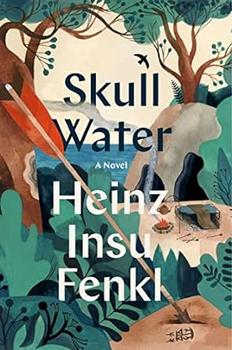Summary | Excerpt | Reading Guide | Reviews | Beyond the book | Read-Alikes | Genres & Themes | Author Bio

When I was about five years old, I saw on the front page of The New York Times a grainy black and white photo of sad, dirty, hopeless looking people. I asked my dad about it and he told me there was a war going on in a faraway country called Korea. I have been against war since that day. No matter how urbane he appears in his interviews, it is clear to me that Chang-rae Lee has written his antiwar manifesto in The Surrendered. With his most powerful prose yet, Lee shows us that war damages people far beyond any other kind of abuse life offers and that persons damaged by the losses, violence and displacement of war will go to great lengths to work out either retribution or salvation.
In recent years I have felt that the technical level of current photo-journalism, while it brings us instant images of war, has also inured us to its horrors because of the high-definition, cinematic quality which looks similar to the movies of Hollywood. The brilliance of this novel is how it lets us into the hearts, minds and bodies of the characters. There is no escape from the harsh realities of their lives. Indeed, despite the excellence of the writing and the compelling nature of the story telling, The Surrendered demands a reader who can stomach the most graphic descriptions of gruesome violence, extreme physical trauma, and deep psychic disturbance.
Some reviewers have pointed out redeeming aspects of the story such as the ability of the human spirit to survive, to create new lives after war. I did not see it that way. The three main characters, as Lee shows clearly, each brought their own life experiences to the Korean War. June survived because of an unrelenting drive to do so and even found a loving man for a while, but her trauma came back in the end in the form of stomach cancer. The lovely but damaged Sylvie always carried with her the dichotomy of wanting to show the mercy taught by her missionary parents while craving release through drugs and sex. Hector, the seemingly immortal character, is the only one to survive the story, but all he desires is death. Each of these characters surrenders in the end to war's final solution.
So why should anyone read The Surrendered? Isn't life hard enough with the economy? Aren't we already overwhelmed by threats of global warming, dangerous food additives and low test scores in our schools? Surely you don't have to. Certainly there are beautifully written novels that celebrate family, love, happiness and spirituality. But if I could, I would make this book required reading for politicians, diplomats, world leaders and arms dealers, though many of them would possibly not get the message. Chang-rae Lee has said that it took him four and a half years to write this story of the defining event in his family's life. After finishing it, I have been looking at people around me with newly curious eyes. How many of the people walking down the street on any given day are carrying the wounds of traumatic stress? I was taught more tolerance by reading this novel than almost anything else I have ever studied on the subject.
![]() This review was originally published in The BookBrowse Review in April 2010, and has been updated for the
March 2011 edition.
Click here to go to this issue.
This review was originally published in The BookBrowse Review in April 2010, and has been updated for the
March 2011 edition.
Click here to go to this issue.

If you liked The Surrendered, try these:

by Ron Rash
Published 2024
Told against the backdrop of the Korean War as a small Appalachian town sends its sons to battle, The Caretaker by award-winning author Ron Rash ("One of the great American authors at work today" —The New York Times) is a breathtaking love story and a searing examination of the acts we seek to justify in the name of duty, family, honor, and ...

by Heinz Insu Fenkl
Published 2023
A "mesmerizing" (PW, James McBride) "magnificent" (Ha Jin) intergenerational coming-of-age novel set in South Korea—about friendship, belonging, and displacement.
Your guide toexceptional books
BookBrowse seeks out and recommends the best in contemporary fiction and nonfiction—books that not only engage and entertain but also deepen our understanding of ourselves and the world around us.